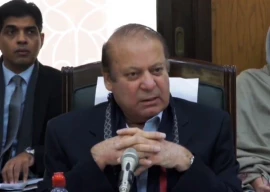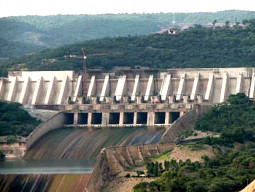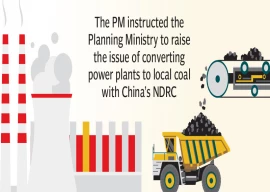
ISLAMABAD:
To ease the severe power crisis in the country, Azerbaijan has offered to export electricity to Pakistan through a proposed swap arrangement with Iran.
Azerbaijan’s government – currently engaged in an exchange of power with neighbouring countries including Russia, Georgia, Iran and Turkey – made a formal offer to Pakistan in a recent meeting of Pakistan-Azerbaijan Joint Ministerial Commission (JMC) held in Baku.
Already, Pakistan is working on a $873 million Central Asia-South Asia (CASA-1000) electricity import project under which 1000-1300 MW surplus electricity will be imported from Tajikistan and the Kyrgyz Republic. This project was initiated in 2006 when former president Pervez Musharraf was in power, but the progress has been sluggish. Under this project, a transmission line would be laid down between Tajikistan and Pakistan via Kabul.
An official of the Ministry of Water and Power said that power import project with Azerbaijan through a swap arrangement with Iran would be more feasible than the CASA project — whose implementation could be compromised due to the insurgency in Afghanistan. However, the official said that the project with Azerbaijan could be halted due to pressure from the United States given its tense relationship with Iran.
Sources told The Express Tribune that Azerbaijan would export electricity to Iran to meet its demand and in return, Iran would transmit the same volume of electricity to Pakistan under the swap arrangement.
Iran has already offered to export 10,000 MW power to Pakistan to overcome the power crisis in the country. Pakistan is currently importing 35 MW of electricity from Iran to meet its requirements in Gwadar and work was in progress to import 100 MW of additional electricity.
“There is a possibility that the swap arrangement could be successful with Iran to import electricity from Azerbaijan since Pakistan is already working on a mega-electricity-import project with Iran,” an official said.
Sources maintained that the other proposal tabled was that Iran could be asked to set up a power plant at the Pak-Iran border to provide electricity to Pakistan against the power that it would import from Azerbaijan under the proposed swap arrangement.
“Both arrangements will help save power transmission and distribution losses,” sources said, adding that Pakistan and Azerbaijan will now take up the issue of electricity swap with Iran to move ahead on the proposed deal.
When contacted, Petroleum Minister Dr Asim Hussain, who had left for Baku to attend the commission meeting, said: “I have no knowledge of this proposal since I had to return to Pakistan due to President Asif Ali Zardari’s illness.”
The total installed capacity of power generation in Pakistan is 20,800 MW. However, the country is only able to produce a maximum of 15,000 MW of electricity against the total installed capacity due to inefficiencies in the power sector. Out of the total generation, 5,000 MW is produced by the Water and Power Development Authority (Wapda), 2,000 MW by Gencos, 7,600 MW by IPPs including power generation through nuclear sources and 200 MW through the rental power plants.
Published in The Express Tribune, December 12th, 2011.












































COMMENTS
Comments are moderated and generally will be posted if they are on-topic and not abusive.
For more information, please see our Comments FAQ